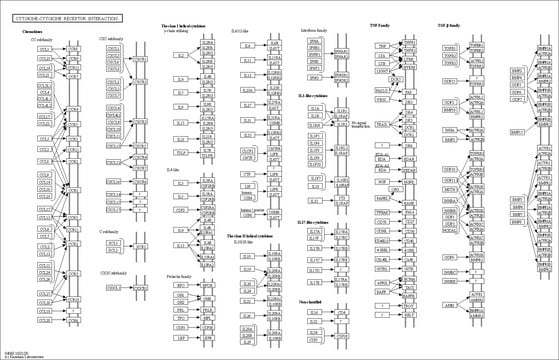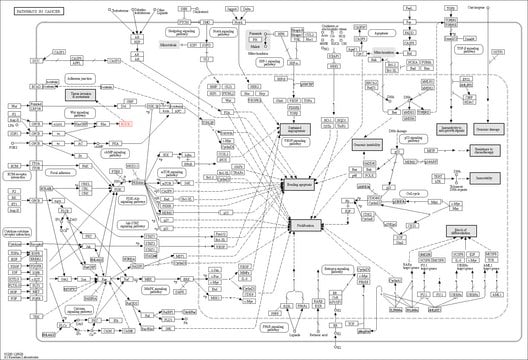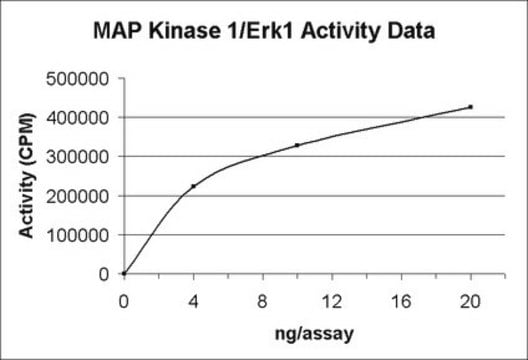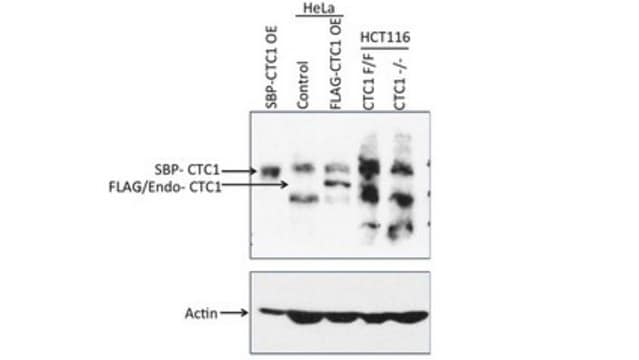SRP3189
APRIL from mouse
recombinant, expressed in E. coli, ≥98% (SDS-PAGE), ≥98% (HPLC), suitable for cell culture
Synonim(y):
CD256, TALL-2, ZTNF2, A Proliferating-inducing Ligand, TNFSF13, TRDL-1a
About This Item
Polecane produkty
pochodzenie biologiczne
mouse
rekombinowane
expressed in E. coli
Próba
≥98% (HPLC)
≥98% (SDS-PAGE)
Postać
lyophilized
masa cząsteczkowa
21.9 kDa
opakowanie
pkg of 20 μg
metody
cell culture | mammalian: suitable
zanieczyszczenia
<0.1 EU/μg endotoxin, tested
kolor
white to off-white
numer dostępu Protein ID
numer dostępu UniProt
Warunki transportu
wet ice
temp. przechowywania
−20°C
informacje o genach
mouse ... TNFSF13(69583)
Opis ogólny
APRIL (a proliferation-inducing ligand) was identified in 1998 through database mining and is a member of the TNF (tumor necrosis factor) family. APRIL gene is localized to human chromosome 17p13, contains six exons, and is alternatively transcribed to 1.8, 2.1, and 2.4 kb mRNA transcripts. APRIL protein is composed of a cytosolic domain of 28 amino acids, and a transmembrane region. It also contains an exoplasmic region, made up of a stalk and a TNF domain. It shares the highest similarity to BLyS (B lymphocyte stimulator) protein, ~30% sequence similarity in the TNF domain. It is synthesized as a type II transmembrane protein and is proteolytically processed as a mature protein, which is a soluble and non-covalent trimer. Recombinant murine APRIL is a soluble 21.9 kDa protein, consisting of 192 amino acid residues.
Działania biochem./fizjol.
Sekwencja
Postać fizyczna
Rekonstytucja
Kod klasy składowania
11 - Combustible Solids
Klasa zagrożenia wodnego (WGK)
WGK 3
Temperatura zapłonu (°F)
Not applicable
Temperatura zapłonu (°C)
Not applicable
Certyfikaty analizy (CoA)
Poszukaj Certyfikaty analizy (CoA), wpisując numer partii/serii produktów. Numery serii i partii można znaleźć na etykiecie produktu po słowach „seria” lub „partia”.
Masz już ten produkt?
Dokumenty związane z niedawno zakupionymi produktami zostały zamieszczone w Bibliotece dokumentów.
Nasz zespół naukowców ma doświadczenie we wszystkich obszarach badań, w tym w naukach przyrodniczych, materiałoznawstwie, syntezie chemicznej, chromatografii, analityce i wielu innych dziedzinach.
Skontaktuj się z zespołem ds. pomocy technicznej







